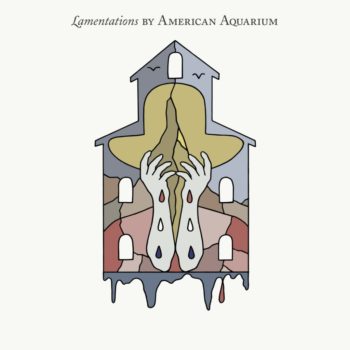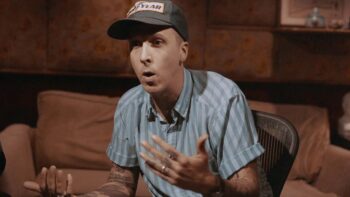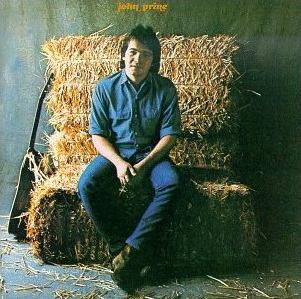Watch: Part One of this Powerful Interview with BJ Barnham of American Aquarium
Lamentations is the name of the latest album by American Aquarium, and it just may be the best record of 2020. The main creative force behind American Aquarium is vocalist/songwriter BJ Barnham. The 13th Floor’s Marty Duda spoke to BJ from his home in Raleigh, North Carolina… deep in the heart of Dixie.
Follow American Aquarium: WEBSITE FACEBOOK SPOTIFY INSTAGRAM TWITTER YOUTUBE
With songs like A Better South and Me + Mine (the day I woke from the American dream), BJ Barnham has plenty to say about what’s going in the US right now. So, watch and listen as BJ tells it like it is as chaos swirls around his home
With so much to say, this is Part one of the conversation… Part Two will follow.
——————————————————————————————–
Watch the Zoom Video and/or read the transcription:
M: I’ve gotta tell you, I went out and bought the album a couple of weeks ago.
BJ: Oh, heck yeah.
M: And it’s definitely my favourite album of the year and so I walked down to the record store down the street and ordered it from the guy and he called me up and he got the record and he’s been listening to it every day since as well and now it’s his favourite record.
BJ: Awesome.
“I’m one of those people that listen to science and doctors. I don’t listen to Facebook medicine experts that I went to high school with but also own landscaping services. You know, I take it serious.”
M: We’re doing it one at a time.
BJ: I’ll take it how I can get it you know?
M: Yup. It’s a fantastic record and especially with all the stuff that’s going on in the States. Tell me how you feel about that and as far as how it relates to you and the record.
 BJ: I wish I could say that I was prophetic enough to know this was coming and that
BJ: I wish I could say that I was prophetic enough to know this was coming and that
I was gonna write about it but I was writing about where we were a year ago, kind of the divisiveness of our country and then throw a global pandemic and an election year on top on that and this record became all too timely way too quickly. It’s one of those records that I was hoping would mature and we would see… we wouldn’t see it come to fruition, we wouldn’t see some of these things happen but here we are less than two months after the record comes out and it almost seems as if I was writing about the current times.
It’s a good feeling as a songwriter to know that you wrote something that was relevant, but it’s also a weird feeling knowing that these songs are talking about the worst possible scenario and here we are in the worst possible scenario.
“It’s not about politics anymore, it’s not about fiscal responsibility or tax allocation or social programmes, it’s about good people versus bad people.”
M: I understand yeah. Are you in North Carolina now?

BJ: Yeah, this is where I’m based. A lot of people move to Nashville or Austin or New York. I was born in North Carolina, I went to school in North Carolina and so it only made sense for me to try to build my music career out of the state that I was born in so I’m still in Raleigh. I been here for eighteen years now which is crazy to think I spent eighteen years in my home town of Reidsville in North Carolina and now eighteen years here in Raleigh so I guess next year, this will be the place I’ve lived the longest in my life.
M: Congratulations.
BJ: Yeah.
M: And what’s the vibe like on the street in Raleigh?
BJ: I wouldn’t know, I don’t really leave the house. I’m one of those people that listen to science and doctors. I don’t listen to Facebook medicine experts that I went to high school with but also own landscaping services. You know, I take it serious. Me and my wife and I have a two year old daughter, my father is sixty-five. I don’t want to be the cause of any problem. If the price that I have to pay is me standing inside of my house and spending time with my family, there’s worse things to pay for safety.
M: I can tell you from experience here in New Zealand, it works.
BJ: I’m so jealous.
M: Pretty much the whole country just locked down for two months and we beat it.
BJ: I’m so jealous. I see the photos and the videos of the soccer match there everybody got to go to, just you know post…’we beat this thing yay!’ And here we are and we’re seeing, we haven’t seen a decline, it’s just numbers keep going up and nobody seems to care, like we’re the only country who thinks that us being inconvenienced was the end of a pandemic.
Like how conceited and selfish can a country be to where everybody else in the world is being affected by this and handling it properly and then we’re just like, ‘You know what, we tried for ten weeks, let’s just chalk it up to, this isn’t gonna happen.’
“Here in the south, we get the stereotype of being dumb and uneducated, we talk slow, our words drag out. But the only thing more dangerous than a dumb Southern person, is an educated Southern person”
M: Well sadly, it really looks like its just lack of leadership.
BJ: Us? Lack of leadership in the United States? That’s blasphemous, there’s no way that we could let that happen you know. Yeah, there’s a severe lack of leadership and there’s a severe lack of accountability from that leadership and here we are.

It’s sad when the optimistic people I know who are like, ‘Well, I didn’t think we’d make it three and a half years, here we are at three and a half years into this thing and it’s further than I thought we’d make it with this presidency.’
But I really do think his base had always been who they are. But I think the last six months, really kind of showed the true colours of people. You realise that it’s not about politics any more, it’s not about fiscal responsibility or tax allocation or social programmes, it’s about good people versus bad people. It’s about people that believe in a better humanity and giving people equal chances at succeeding in life and not just about the status quo that this country was built on.
Especially being a Southerner here in America, it’s hard to look at previous generations and the missteps that they took and admit it and admit that people that you love, people that brought your grandparents into the world, that brought your parents, that brought you into the world, might have been bad people. Might have been standing up for the wrong side of history. That’s a hard thing to look in the mirror and admit. But there’s a lot of young Southerners like myself that are willing to do that. That are willing to say “Ok let’s look at history, see what not to repeat and let’s just try to be better people.” But then you have people that either are completely Ok with being racist, homophobic, misogynistic, xenophobes or at least it’s not a deal breaker.
M: Exactly. That’s a problem.
BJ: Yeah, and here in the South, we get the stereotype of being dumb and uneducated, we talk slow, are words drag out. But the only thing more dangerous than a dumb Southern person, is an educated Southern person. When you meet us you might think that you have the upper hand but some of us are actually educated, we read books and we like to learn from mistakes.
M: Well, I’m originally from Pennsylvania and New York state so yeah I understand where you’re coming from and I lived briefly in Florida.
BJ: We won’t hold that against you.
M: Thank you, I appreciate it. And I’m curious, like you said, the album has been out for two months now but you’ve been kind of in isolation, have you gotten much feedback from people about what you’re writing about and how you’re approaching these things?
“This is our eighth record, eight full studio records as a band and I feel like I’ve finally…finding my own spot to stand up and say something.”
BJ: Yeah. We put the record out on May 1st which is weird cause that’s smack in the middle of, that was even when Americans were quarantined. That was when it was still a very serious thing so there’s no handbook for releasing new music in the middle of a pandemic. You have no idea if it’s even gonna be received by people. You have no idea who’s gonna listen to it but what we learned is when you lock people up for eight weeks, ten weeks, twelve weeks, they become hungry for new art. Especially when nothing is being created.
So luckily for us, we recorded this record in December, here we are sitting on a piece of brand new art. You’re given the decision to go ahead and put it out on your release date or push it until the fall when you hope that you can tour behind it. And we chose the former just because we thought it was important to get it out into the world, we believed in the record and we thought that the record didn’t need any fancy marketing gimmicks or a big tour to push the songs.
 We really felt like the songs stood on their own feet and we put it out into the world and luckily for us, at least in my experience, we were correct. People have really gravitated towards this record. Long time American Aquarium fans find that it nestles right into our catalogue pretty well and we brought a lot of new people to the table with this record. A lot of people who had either never heard of us, never given us the chance, or maybe listened to me on my third record when I was still trying to find my feet as a songwriter and came back and said wow, this kid really grew into a real songwriter.
We really felt like the songs stood on their own feet and we put it out into the world and luckily for us, at least in my experience, we were correct. People have really gravitated towards this record. Long time American Aquarium fans find that it nestles right into our catalogue pretty well and we brought a lot of new people to the table with this record. A lot of people who had either never heard of us, never given us the chance, or maybe listened to me on my third record when I was still trying to find my feet as a songwriter and came back and said wow, this kid really grew into a real songwriter.
M: You definitely have.
BJ: Thanks man.
M: There’s some amazing songs on this record. Yeah, I’m kind of one of those people that was aware of the band but never paid that much attention until for some reason this record and so then I went back and listened to some of the older stuff and it all makes sense now.
 BJ: Yeah, we’re a great band. Some people come out of the gate really, really great… John Prine, Guy Clark, Jason Isbell, out of the gate with the (Drive-By) Truckers. Those are called unicorns. Those people don’t exist in the real world. Nobody comes out for their first debut record and writes John Prine’s solo record. Like his solo debut, nobody should have a greatest hits as a debut record, like that’s not fair to the rest of us trying to put words on paper.
BJ: Yeah, we’re a great band. Some people come out of the gate really, really great… John Prine, Guy Clark, Jason Isbell, out of the gate with the (Drive-By) Truckers. Those are called unicorns. Those people don’t exist in the real world. Nobody comes out for their first debut record and writes John Prine’s solo record. Like his solo debut, nobody should have a greatest hits as a debut record, like that’s not fair to the rest of us trying to put words on paper.
But guys like me who have been doing it for fifteen years, it’s fun cause during this quarantine I’ve actually listened back and dug back through my old catalogue searching for some of those gems that I wrote off as just novice youth. But it’s fun to watch the progression. It’s fun to watch a craft. It’s like watching somebody build cabinets or build houses. Their first ones are gonna be pretty bad and their second ones aren’t gonna be as bad as the ones before it and then so on and so forth.
And I’m finally feeling like I’m getting to a point in my career where I understand how songs function and I understand what my voice is which is really hard for a lot of people to find because you spend so much time of your youth… Your first couple records are these amalgamations of all your influences and you’re trying to find, You know, art is just one of these things where you take everything that you’ve been surrounded by and you pluck the pieces that mean the most to you and then you try to make that your voice. This is our eighth record, eight full studio records as a band and I feel like I’ve finally, not only wearing my influences on my sleeve, but also finding my own spot to stand up and say something.
M: You can definitely hear some Tom Petty, some Dylan or Neil or whatever in there but it’s not like you’re aping them or anything, you have your own voice at this point.
BJ: Yeah. If you want to hear me ripping off Springsteen and Petty, listen to the first two or three records. It’s me knowing the kind of music that moves me, knowing the kind of narrative storytelling that moves me, knowing the kind of songwriter fronting a really great rock ‘n’ roll band moves me. And then the last couple records, you’re finding somebody who can tip the hat and not fully ape them, you know what I mean?
M: Yeah. So, you mentioned a rock ‘n’ roll band. Really even though the band has been around for many years, there’s a lot of new members this time around, you kind of revamped the whole band last year right?
BJ: Yeah. I’m pushing close to forty members that have been in this band in fifteen years. So to say the turnover has been tumultuous is a severe understatement. I’ve had a lot of band members, but the newest version of the band has been here a little over a year now. They’re the band that I made the record with back in December and for the foreseeable future, they’re not going anywhere.
Every time you replace a band member, you’re hoping to take a step forward and replace them with someone with more experience or more talent or more just overall drive. And I feel like I’ve really hit my stride as far as the people that I’ve surrounded myself with to make music because everybody I’ve surrounded myself with has been talent.
I think at a certain point, you’re able to pull in talented people. But finding talented people that really love serving the song as much as you do, that’s the hard part. Finding a good guitar player is easy. Finding a guy that can just solo the whole time is really easy. Finding a guy that has restraint, finding your version of Mike Campbell, finding a guy that can sit back and just play the same couple notes and make this really iconic lead line. But if you look at him and say ok cut loose, they can cut loose.
My favourite stuff is like Mike Campbell and some of that Mudcrutch stuff they released back in the mid-2000s, that shows you just how good Mike Campbell really is at guitar. He’s good at music. But you listen to a lot of those Tom Petty songs and they’re very, very simple, almost beginner but beginners could never come up with that. It’s somebody who is a student of the song and that’s what I found in my guitar player, Shane Boeker. He is the only holdout from the Things Change band. So he’s been with me for two records now. He is one of the most phenomenal guitar players I’ve ever met…not just played with, but ever met. He walks that line between bluesy-lead stuff and atmospheric, ambient stuff really, really well.
The way I got Shane was when I was rebuilding the band, I was talking to some friends, I told them I wanted a guitar player, because before Shane, I had two guitar players. I had one lead player and one kind of set the mood atmosphere rhythm player and I told my friend I was like I want one guy that can do both those jobs at the same time. And you really think that it’s gonna be the white whale, you’re not gonna find that and then out of Austin, Texas – Shane Boeker.
M: Well it’s a good place to look for musicians.
“We wanted to sucker-punch people, we wanted to let people know that this was not a normal American Aquarium record, this was not a normal Americana record.”
BJ: Yeah, there’s way worse places to try to pluck a white whale guitar player. But Shane’s been great, he’s been with me for a while but this new band, Rhett Huffman, Neil Jones, Ryan Van Fleet, Alden Hedges, all just amazing players and we had fun making a record. It didn’t feel like work, it didn’t feel strenuous. It was one of those striking lightning you know, it’s putting lightning in a bottle and for ten days we made a really cool record.
M: It took ten days, huh?
BJ: Well it took eight days. One of the days was setting up and one of the days was breaking down but I still paid for those days. Yeah, we cut that record in eight days. All the basic tracks were done in four days so we went in, we were average bout four songs a day when we got in. And then obviously a song like Me + Mine took an entire fifteen hour day to build into this mountain of an opening track.
M: That is a good way to describe it. It does build up and it does hit you. By the time you’re done you’re just like ‘whoa, what was that’?
BJ: A song like that can only go in two places on a record. It can be a closer or it can be an opener and most people I’d say nine out of ten people would choose to make that a closer. We went the opposite. We decided that we wanted to punch people in the mouth from the front. I imagined someone who never… you, I imagine you listening to the record, I imagined someone who had never listened to the band putting that on, it starting as a folk song and then turning into almost a Wilco Sky Blue Sky jam. And I imagine that song ending after seven and a half minutes and the listener saying, ‘what’s next?’ Like if that’s the opener, almost an eight minute rock opus, where do we go from here? And that was the intended effect. That was very willingly put at the front of the record just because we wanted to sucker-punch people, we wanted to let people know that this was not a normal American Aquarium record, this was not a normal Americana record.
M: It’s almost like you built it the opposite way you would think. The song’s at the end of the record are kind of like the ones that would more likely be singles, The Long Haul and A Better South. Did you look at it that way?
 A:Yeah, The Long Haul was definitely a purposeful placement. For those that are unaware of the record, the record is an extremely dark look at the American landscape, especially politically and socially. And I didn’t want the last song on the record to be like a dirge. I didn’t want it to be just another four minutes of negativity, I wanted to leave the listener on a hopeful note. I wanted to leave the listener on an uptick. I wanted the last thing that you heard, almost a rally cry of no matter how many times we fall down, you’ve got to get back up and stick with it… this great American experiment that we’re currently in, it’s one those.
A:Yeah, The Long Haul was definitely a purposeful placement. For those that are unaware of the record, the record is an extremely dark look at the American landscape, especially politically and socially. And I didn’t want the last song on the record to be like a dirge. I didn’t want it to be just another four minutes of negativity, I wanted to leave the listener on a hopeful note. I wanted to leave the listener on an uptick. I wanted the last thing that you heard, almost a rally cry of no matter how many times we fall down, you’ve got to get back up and stick with it… this great American experiment that we’re currently in, it’s one those.
“What the South was built on, what our economy was built on, what our social structure was built on, it was built on hate and taking advantage of people of colour.”
I apply it to three things in my life. I apply it to my tumultuous band member departures, I apply it to my sobriety and I apply it to my relationship with my wife. And so those are three things where I have fell down and instead of quitting, got back up and worked to make it better. And so I wanted to leave the listener with that kind of message instead of, let’s say, a Me + Mine or The Day I Learned To Lie To You, or Six Years Come September, I didn’t want to leave it with a really, sad, depressing message, I wanted to leave it with, pull yourself up and go get ’em.
M: What kind of reaction have you gotten to the song A Better South? I just wondered, you know? Maybe it’s good you’re in isolation.
BJ: Yeah. When you call yourself a country band, and I think at the root of it we are a country band. A lot of traditionalists will argue that we’re not, we’re a little too rock for your traditional country people. We’re not pretty enough to be on the radio. But at the root of it we tell stories and that’s what country music is. Country music is an honest interpretation of life and anything with an acoustic guitar and a guy telling you a story in three verses and a chorus, is country music. I don’t care how you church it up or what all-encompassing umbrella you put it under like “Americana.” It’s country music at its root.
“I never want my daughter to look at me like a coward because I wanted a couple extra bucks in my pocket or I wanted a couple extra likes on Facebook.”
When you release a song like that that is a self-reflective look in the mirror of where the south is and where it was and where it could be, this is coming from a progressive Southerner who is…
The Drive By Truckers had a really great way of describing the duality of the southern thing. It’s about loving where you’re from and also hating some of the things that where you’re from created. Like for me, two of the greatest things in this entire world come from the South, music and food. There is nobody in the entire world that does food or music better than Southern people, I will argue that until the day I die.
I love that about the South but I also hate… I talk about it in the song…that kind of shadow, the original sin of America that took place in the South. What the South was built on, what our economy was built on, what our social structure was built on, it was built on hate and taking advantage of people of colour. And when you put that into a song and call it country music, you’re gonna offend some people that stand up and say that it’s their history, that it’s their heritage. It’s not hate, it’s who my great granddaddy was.
And I hate to break it to those people but the Confederacy lasted four and a half years. Outcast lasted longer than the Confederacy. Get out of here! That’s just an excuse for your close-mindedness and your hatred. And so I wanted to put it into a song. The thing that I hear a lot, cause as you can probably tell by now I’m very outspoken with the things I believe in, I’m told a lot that I need to ‘shut up and sing’.
That’s my favourite is when people, I don’t pay for your political opinions, I pay for you to sing songs and I have to explain to them that if you expect me to be open and honest and transparent about my personal life, about my relationships, about my inter-band relationships, about my addiction, about sobriety, about the road, but then I can’t talk about that one glaring thing that stares us in the face every single morning when we wake up, you don’t want me to sing, you just want me to sing the stuff you agree with. And that’s not how this works.
You’re paying me as an artist to be observant and then translate my observations into three verses and a chorus that can make you understand said observation. So telling me to shut up and sing is telling me like hey, only do half your job. And nobody is ever gonna tell you to shut up and sing if you’re echoing their sentiment. The only reason that somebody tells you to shut up and sing is because they have a dissenting view that you do and I’m not gonna tolerate that.
I’ve ran off a lot of people but at the same time I’ve brought a lot of people into the fold because I’m not willing… I will let it affect my bottom line. That’s why a lot of country artists don’t speak out about what’s going on in our country right now is because they realise, from an economic standpoint that half their crowd might lean left and half their crown might lean right. And if they take a stand, they’re gonna run off fifteen dollars a record, fifty dollars a show and it starts affecting your bottom line. I’m at a point where I’m not selling out amphitheatres, I don’t care if I lose twenty racist assholes on Twitter. It doesn’t matter to me.
 At the end of the day, and I only started getting political a few years ago in my songs, one because 2016 happened and then I had a daughter a couple months later, in 2018 I had a daughter. And I decided that I never wanted my daughter to look at me and ask me why I didn’t speak up about things that were important. I never want her to look back in history lessons and see the 2016 election, or what had transpired since, and say, ‘Dad, you had a platform to say something and you didn’t’. I never want my daughter to look at me like a coward because I wanted a couple extra bucks in my pocket or I wanted a couple extra likes on Facebook. I want her to look at me and be like, ‘My dad used every possible thing he could to stand up for the things that he believed in’. And if that’s the legacy that kid has of me, A-OK with it. I’ll hand back that ticket money and those album sales as long as I can look that kid in the eye and know she respects that her dad stood up for something, that’s the most important thing for me.
At the end of the day, and I only started getting political a few years ago in my songs, one because 2016 happened and then I had a daughter a couple months later, in 2018 I had a daughter. And I decided that I never wanted my daughter to look at me and ask me why I didn’t speak up about things that were important. I never want her to look back in history lessons and see the 2016 election, or what had transpired since, and say, ‘Dad, you had a platform to say something and you didn’t’. I never want my daughter to look at me like a coward because I wanted a couple extra bucks in my pocket or I wanted a couple extra likes on Facebook. I want her to look at me and be like, ‘My dad used every possible thing he could to stand up for the things that he believed in’. And if that’s the legacy that kid has of me, A-OK with it. I’ll hand back that ticket money and those album sales as long as I can look that kid in the eye and know she respects that her dad stood up for something, that’s the most important thing for me.
That’s the end of Part 1 of our interview with BJ Barnham. Watch this space for Part 2, coming soon.
